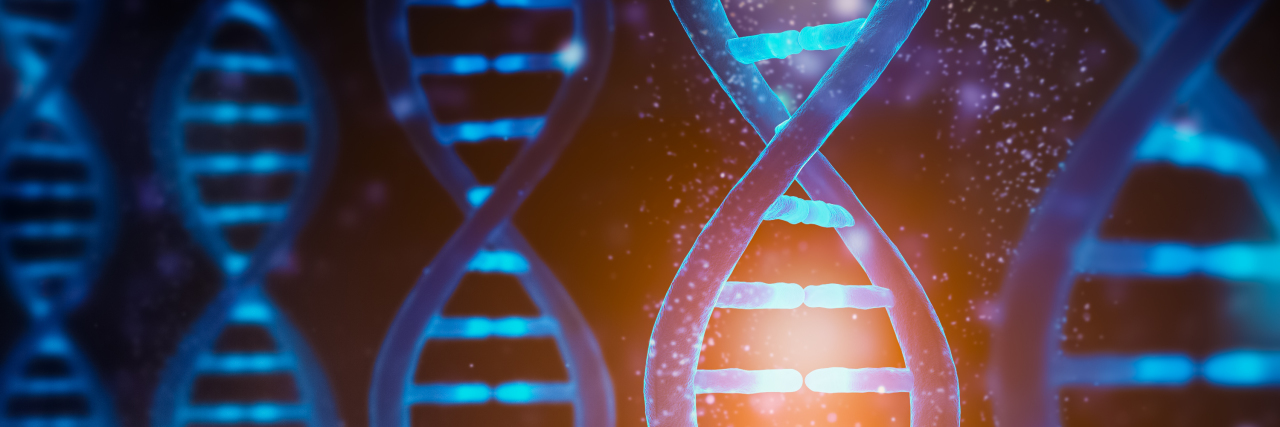New Study Will Look at Eating Disorder Genetics
Editor's Note
If you live with an eating disorder, the following post could be potentially triggering. You can contact the Crisis Text Line by texting “NEDA” to 741741.
Researchers are launching a new study aimed at finding the genetic factors that contribute to developing an eating disorder in hopes of saving lives. The study, Eating Disorders Genetics Initiative (EDGI), is seeking more than 6,000 participants over the age of 18 who had an eating disorder at some point in their lives. A previous study called ANGI looked at genetic characteristics of patients with anorexia nervosa, but this new research will expand its efforts to include and explore the physiological factors of bulimia nervosa and binge-eating disorders.
The University of North Carolina is conducting the study and will be taking saliva samples from qualifying participants to break down their genetic makeup and identify differences in their genome that could make them more vulnerable to developing an eating disorder. Lead researcher and professor Dr. Cynthia Bulik explained that not only will they attempt to look at why some are more likely to have these conditions but try to decipher why some patients are more likely to have a hard time recovering, and why some eventually die from an eating disorder.
“The goal is to get the genetic information to help us answer some of these fundamental, critical questions about the underlying biology of these illnesses,” Bulik said.
But identifying the biological markers of mental illnesses like eating disorders could save lives by helping squash the stigma, she said. Eating disorders are often perceived as quests for weight loss that get out of control, but Dr. Bulik says that couldn’t be farther from the truth. “No one chooses to have this illness.”
Maris Degener, 22, has faced her own struggle with anorexia, and now shares her story as a blogger and yoga instructor. Her illness began with anxiety that escalated to panic attacks, purging and self-harm. After a doctor’s visit, she realized she had also been starving herself and was later formally diagnosed with anorexia. She was 14.
“The eating disorder demanded highly specific kinds and quantities of food and exercise, so my days were shaped around meeting these demands. Yet even when I fulfilled the eating disorder’s requirements, it was never satisfied. There was always something I didn’t take to a far enough extreme. There was always some way that I had ‘failed’. The more I restricted and purged, the less satisfied I was with my body, my self-image and my life,” said Maris.
Maris found hope in practicing yoga and the support she found within the community. But the struggle she’s faced to get better makes her an advocate for the study — an advocate for answers.
“Learning more about the genes involved in the development of eating disorders should open the door to more effective prevention, diagnosis and treatment, while hopefully challenging common misconceptions of the illnesses,” she said.
Treatment, lead researcher Bulik said, is so limited for people with eating disorders. According to Bulik, only about 30% of people with anorexia nervosa make a full recovery. There is only one FDA-approved medication for people with bulimia nervosa, one for binge-eating disorder and zero for anorexia nervosa.
“Part of the reason we don’t have those medications is because up until now we haven’t understood the biology,” Bulik said. “That’s the path that this research is taking us in.”
If you are interested in taking part in the study, you can visit EDGI.org and fill out the questionnaire. Participants who are chosen will provide a saliva sample via a mail-in “spit kit” that is prepaid. You can also learn more about the results of a previous study focusing on anorexia nervosa here.
Header image via libre de droit/Getty Images

